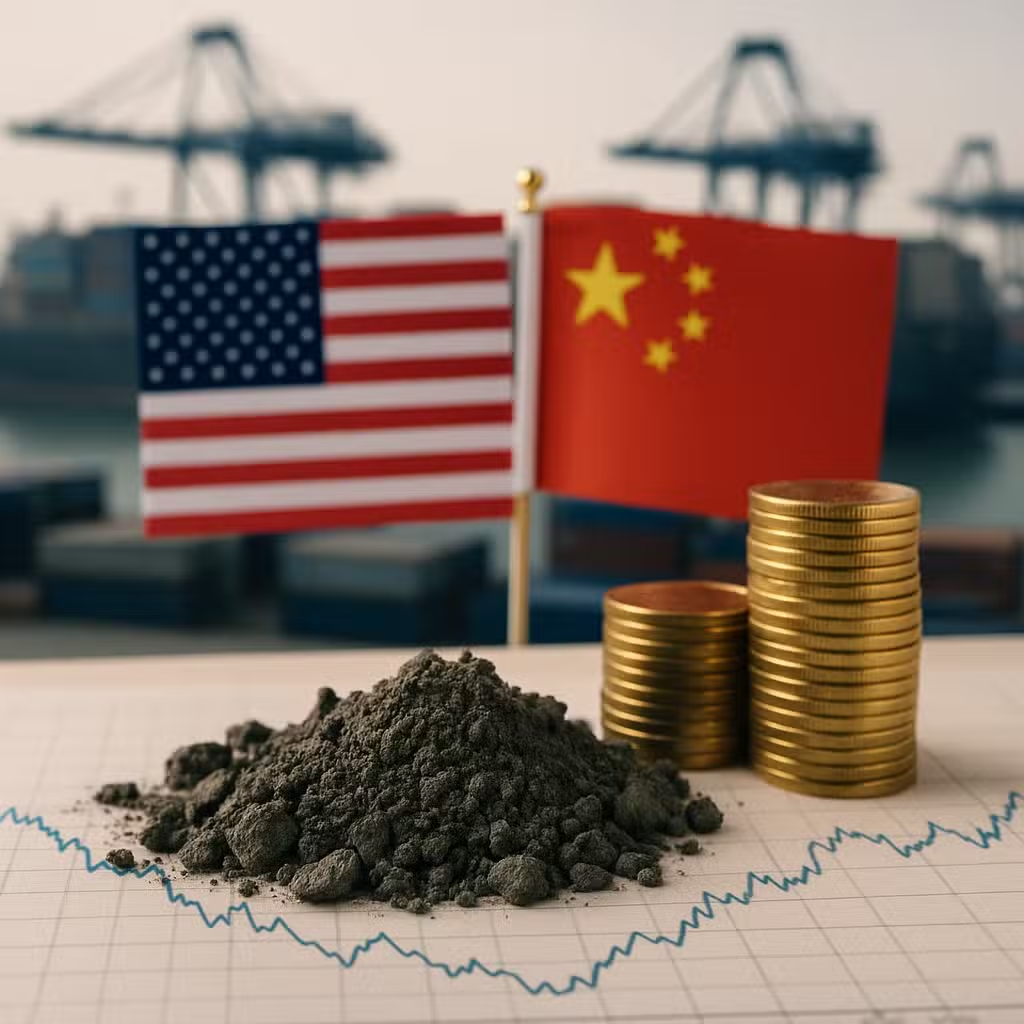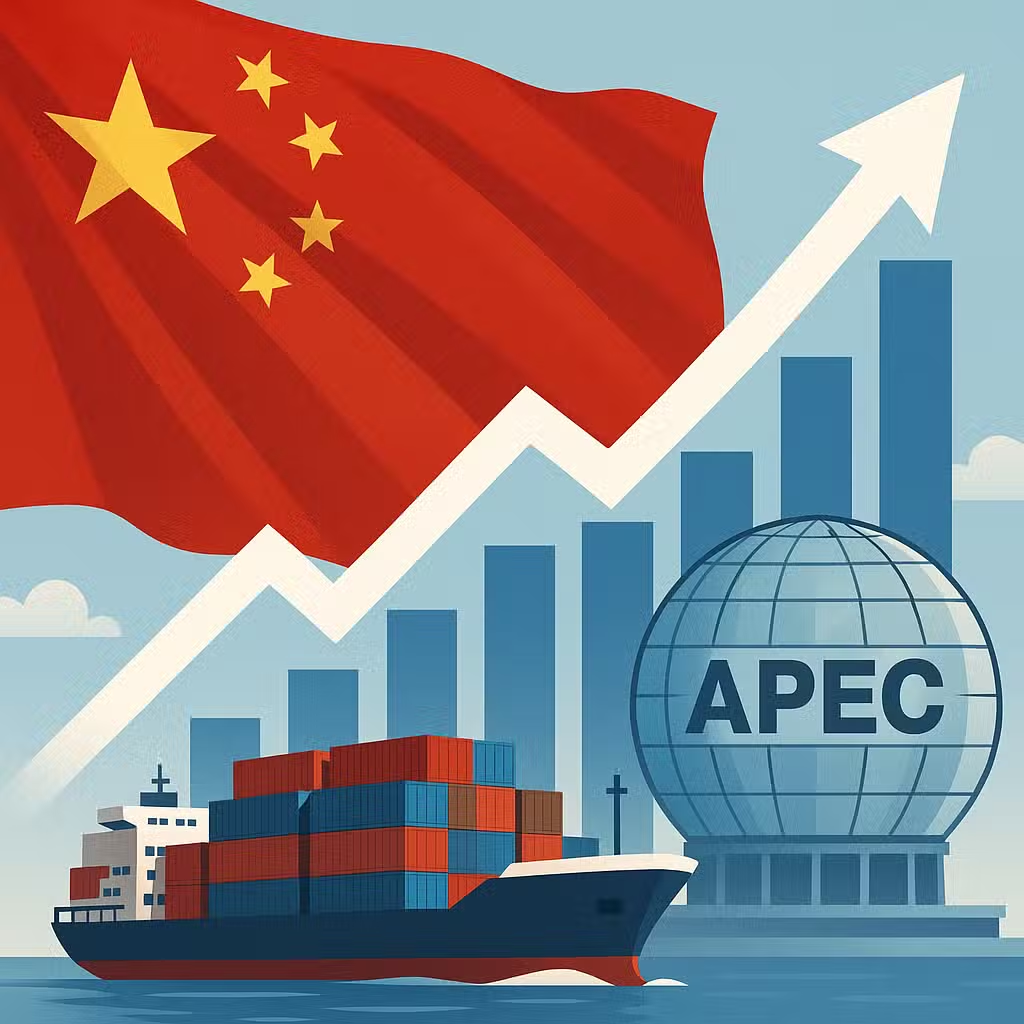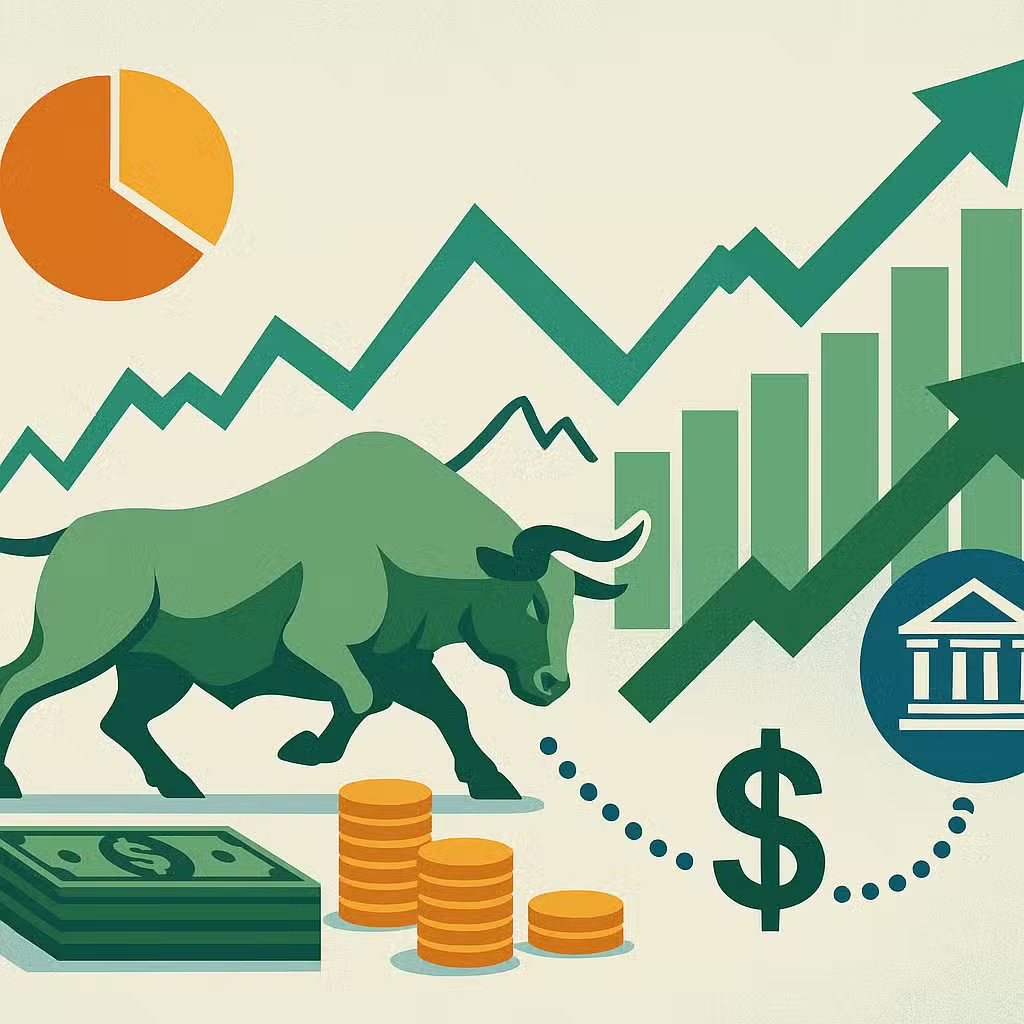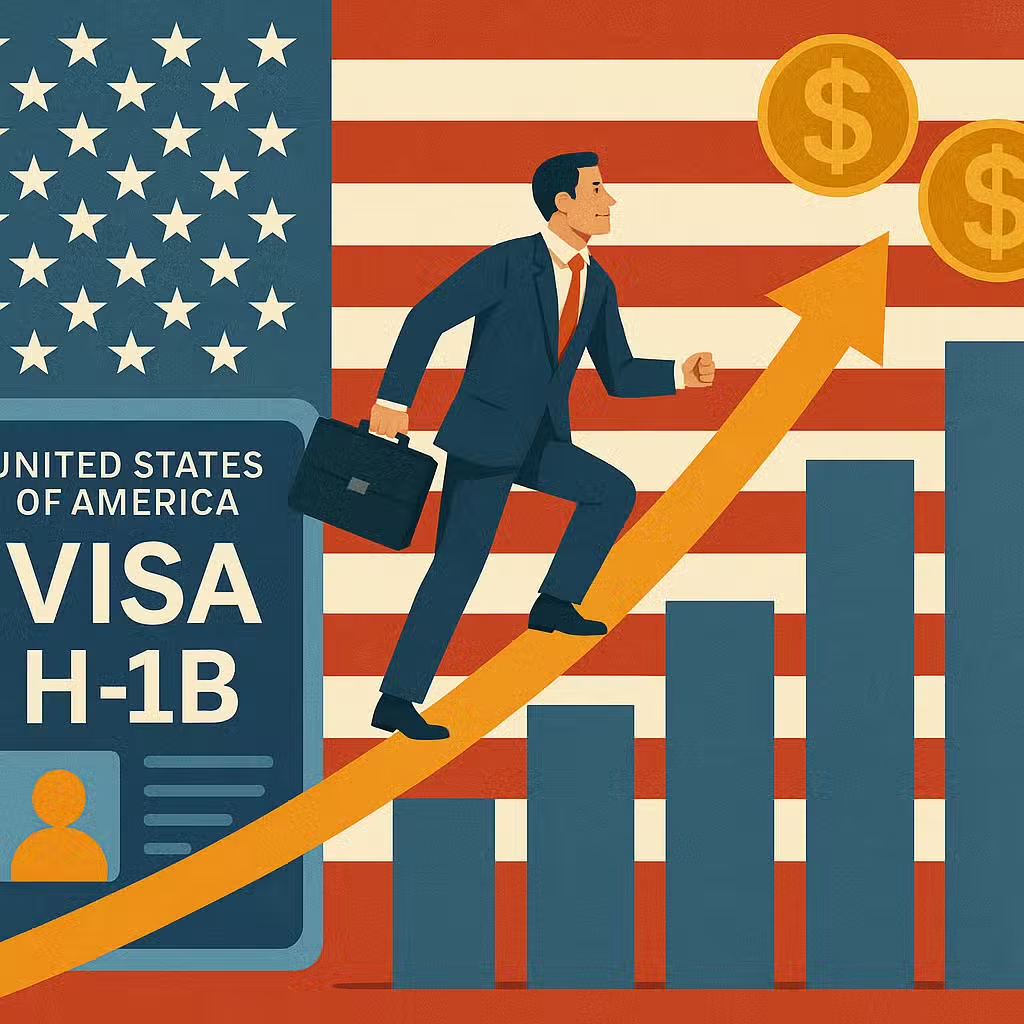US-China Rare Earth Dispute Raises Supply Chain Risks, Impacting Investor Confidence
Think of the US and China trade talks like a high-stakes chess game. Each side is making moves, trying not to lose any important pieces. Investors need to pay attention—because what happens next could affect markets, jobs, and even the prices we pay for everyday goods.
China’s Growing Strength: What’s Happening?
China’s economy is showing some muscle. In September, China’s exports jumped by 8.3% compared to last year, and imports grew by 7.4%. Big banks like UBS even raised their predictions for how much China will export in 2025—from just 1% growth to 4.5%.
- China is finding new buyers for its goods, not just relying on the US.
- The World Bank also upped its forecast for China’s economic growth in 2025, expecting it to grow by 4.8% instead of 4.0% (source).
- This means China could have more power in trade talks, since its economy is holding up well.
For investors, this matters because companies that depend on selling to China—or buying from China—could see changes in their profits and stock prices.
US and Europe Worry About Inflation
Meanwhile, the US and Europe are worried about something else: inflation, or the rising cost of goods. The US Federal Reserve might lower interest rates soon to help the economy, but that could also make prices go up even more.
- If the US and Europe put more restrictions on Chinese goods, prices for many products could rise, since they’d have to buy from more expensive places.
- This makes things tricky for investors in companies that rely on global trade, like tech and manufacturing.
- Inflation has already been a big headache in both the US and Europe; in 2022, US inflation hit a 40-year high at 9.1% (source).
Bulls vs. Bears: Who Has the Upper Hand?
- Bullish case (optimists): China’s strong exports and new trade partners could help its economy keep growing, which is good for Chinese stocks and companies doing business there.
- Bearish case (pessimists): The US and China could both get hurt if a full trade war breaks out. The US points to China’s high youth unemployment (nearly 19%) and a weak property market as signs of trouble.
- Some experts think this is just tough talk, and both sides will find a way to make a deal. But nobody’s sure.
China Focuses on Its Own Shoppers
China isn’t just waiting around. The government is planning new steps to get people in China to spend more. This means more support for shoppers and for high-tech industries.
- China’s leaders are meeting soon to talk about their next big plan for the economy.
- Expect more moves to boost jobs and help local companies.
Stock Markets: What’s the Score?
Chinese stock markets have been rising lately. The CSI 300, a major index, is up 17.4% this year. But stocks are still below their highest points, mostly because investors worry the trade fight could get worse.
- Investors are betting China will step in to help if things get rough, especially with unemployment still high and the real estate market shaky.
- But if trade tensions explode, all bets are off—stocks could drop fast.
Looking back, trade wars have a history of hurting both sides. For example, during the 2018–2019 US-China trade war, both countries’ stock markets saw big swings, and global growth slowed by about 0.8% according to the IMF (source).
Investor Takeaway
- Keep an eye on US-China headlines—market swings could come fast if talks break down or a new deal is announced.
- Diversify your portfolio so you’re not too exposed to one country or sector, especially those tied to trade.
- Watch for signals from central banks (like the Fed) on interest rates and inflation, which can move markets in a hurry.
- Consider companies that could benefit if China’s consumers start spending more, such as tech, e-commerce, and consumer brands.
- Remember: Trade wars rarely have clear winners. Stay patient and don’t make big bets based on headlines alone.
For the full original report, see FX Empire







